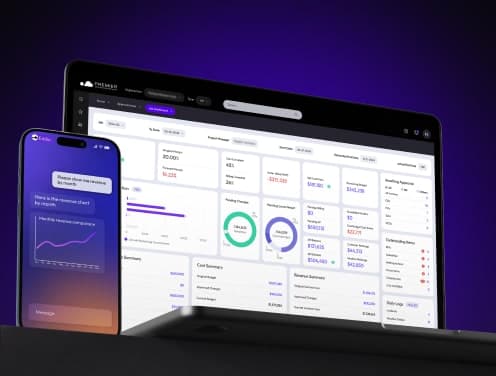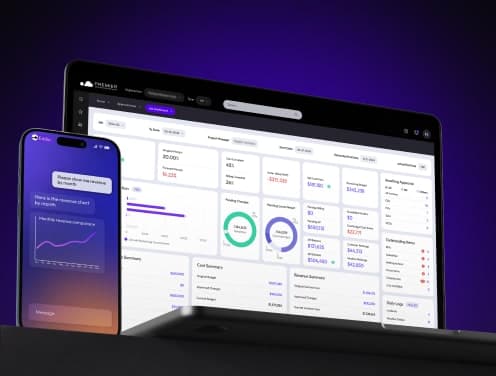
Revolutionizing Residential Construction - The Power of AI-Powered ERP Systems
In an era where technology reshapes industries, residential construction stands on the brink of a transformation. The integration of AI-powered ERP systems promises to revolutionize how construction projects are managed, making processes more efficient and effective.
Traditionally, managing construction projects involved a myriad of challenges, from resource allocation to project forecasting. Enter Enterprise Resource Planning (ERP) systems, which have long been the backbone of efficient project management, but with the infusion of artificial intelligence, they reach new heights of capability and performance.
This article delves into the pivotal role that AI-powered ERP systems play in residential construction. We will explore their functionalities, benefits, challenges, and the future trends set to redefine the industry landscape.
The Role of ERP Systems in Construction
ERP systems are essential for integrating core business processes like finance, human resources, and supply chain management in the construction industry. These systems help coordinate various functions, ensuring that construction projects run smoothly. The integration of artificial intelligence into ERP systems enhances operational efficiency, allowing businesses to streamline complex tasks.
AI-powered ERP systems offer real-time insights and predictive analytics. This ability aids construction companies in accurately forecasting project demands and optimizing resource allocation. By leveraging these insights, companies can improve decision-making capabilities and boost overall operational performance.
Despite their benefits, traditional ERP systems often come with high initial costs and complexity, making them less accessible for fast-paced construction environments. However, the ERP software market will value at $71.34 billion by 2030. Effective use of AI-enabled ERP systems in construction can overcome these challenges, providing enhanced strategic planning and increased adaptability.
Understanding AI in the Context of ERP
AI integration in ERP systems automates repetitive tasks, drastically boosting operational efficiency. This advancement enables employees to focus on strategic initiatives that offer greater business value. AI-driven capabilities, such as predictive analytics, allow companies to forecast resource needs and project risks, optimizing resource allocation and reducing costs. By providing real-time insights, AI enhances decision-making and customer service, ultimately improving overall business operations.
Incorporating AI into ERP solutions results in significant error reduction and streamlined financial processes. For instance, there's a reported 36% drop in errors and faster closing of financial books. These intelligent systems continuously learn from data and adapt to changing conditions, transforming traditional ERP into adaptive platforms that optimize business intelligence in real-time.
Machine Learning Applications
Machine learning elevates ERP systems by enabling predictive analytics to anticipate demand, detect anomalies, and predict failures. This facilitation helps in preventative maintenance through advanced algorithms. Intelligent process automation employs machine learning and robotic process automation to automate repetitive administrative tasks, improving operational efficiency and decision-making.
In supply chain management, machine learning predicts disruptions, automates inventory management, and offers intelligent order fulfillment suggestions. Additionally, AI-driven fraud protection utilizes machine learning to detect and prevent fraudulent activities in real-time, enhancing the security of financial operations and customer data.
Natural Language Processing Benefits
Natural Language Processing (NLP) in ERP systems significantly improves user interaction. By understanding and responding to human language, it enhances user experiences. NLP tools powered by large language models such as ChatGPT enable contextually relevant understanding of user queries and sentiment analysis, boosting productivity.
Chatbots and virtual assistants driven by NLP empower non-technical users to easily access information and summarize data. This capability enhances productivity and simplifies user interactions. The integration of NLP diminishes complexity in managing interfaces, enhancing customer satisfaction through efficient chat-based support and communication improvements.
Robotic Process Automation
Robotic Process Automation (RPA) in AI-powered ERP systems automates routine tasks, such as invoice processing and accounts management. This automation leads to substantial efficiency gains in business processes. By reducing operating costs up to 25%, companies benefit significantly from increased operational efficiency.
RPA is particularly valuable in environments laden with repetitive tasks, like manufacturing, by speeding up business processes. Through intelligent process automation, organizations streamline operations and improve decision-making accuracy, paving the way for enhanced business performance.
Benefits of AI-Powered ERP Systems
AI-powered ERP systems significantly enhance operational efficiency by automating routine tasks, allowing employees to focus on higher-value work. These systems integrate advanced data analysis and forecasting capabilities, leading to more informed decision-making. By reducing operational errors, AI in ERP systems can lower mistakes by up to 36% in financial processes. Additionally, AI-driven improvements in inventory management and production planning help reduce operational costs.
Enhancing Decision-Making
AI integration within ERP systems enables rapid and data-driven decision-making. Predictive analytics allow business leaders to anticipate future trends, making strategic choices based on historical data and statistical models. Natural Language Processing (NLP) further improves user interactions, offering intuitive software engagement and informed responses. Automation of routine tasks frees up valuable employee time for crucial strategic initiatives.
Streamlining Workflows
AI-powered automation enhances workflow efficiency, minimizing manual data entry and reducing error rates. Machine learning provides real-time insights, optimizing inventory levels and production schedules to boost customer satisfaction. Generative AI shortens document processes, transforming tasks from 30 minutes to just 5. By identifying supply chain bottlenecks, AI helps businesses refine workflows and cut costs.
Automating Repetitive Tasks
ERP systems driven by AI effectively automate repetitive tasks like data entry and invoice processing, improving efficiency and reducing human error. Automation allows employees to engage in high-value activities, boosting organizational productivity. Generative AI facilitates automatic content creation, enhancing human capabilities in reporting and analysis. Overall, AI streamlines operations and supports rapid decision-making through automated data insights.
Optimizing Resource Allocation
AI-powered ERP systems leverage machine learning to allocate resources dynamically, enhancing operational efficiency. By optimizing production and inventory management, these systems significantly reduce waste. AI models adjust resource strategies to match fluctuating demands, improving forecasting accuracy and supporting strategic planning. This leads to lower operational costs and improved resource allocation.
Improving Project Forecasting
AI technologies such as machine learning and predictive analytics considerably enhance project forecasting by identifying patterns in large datasets. This improves market trend predictions, customer behavior analysis, and supply chain disruptions forecasting, essential for efficient planning. Enhanced forecasting allows businesses to match supply with demand and seize market opportunities proactively, improving project timelines and outcomes.
Key Features of AI-Powered ERP Systems
AI-powered ERP systems are revolutionizing business operations by enhancing operational efficiency and automating routine tasks. This allows employees to concentrate on higher-value activities. With AI integration, ERP systems offer prescriptive insights and predictive analytics, which improve forecast accuracy and decision-making. AI algorithms can process vast amounts of real-time data, empowering companies to anticipate supply chain disruptions, demand fluctuations, and optimize procurement processes. Additionally, machine learning and natural language processing enable better supplier communication and automate routine inquiries, further streamlining operations.
Integration with Financial Management
The integration of AI into ERP systems transforms financial management by automating labor-intensive tasks such as invoice generation and financial reporting. This automation increases accuracy and efficiency, freeing finance departments to focus on strategic decisions. Companies adopting AI in their ERP systems report a 40% increase in worker productivity, mainly due to streamlined financial tasks. Predictive capabilities of AI aid in financial planning and adaptability, enhancing market agility. Reports show a 20-30% improvement in delivery performance, significantly boosting financial operations.
Supply Chain Management Capabilities
AI-powered ERP systems enhance supply chain management by predicting disruptions and automating inventory management, thus improving efficiency. Advanced data analysis improves the accuracy of supply chain operations, allowing for adaptive responses to market changes. AI-driven inventory management ensures timely procurement of raw materials, streamlining production and reducing costs. AI's intelligent order fulfillment suggestions boost customer satisfaction. Utilizing AI technology, businesses can drastically cut excess inventory holding costs and refine supply chain processes.
Customer Service Enhancements
Integrating AI into ERP systems improves customer service by enabling rapid and consistent responses to inquiries. AI-powered chatbots handle routine customer interactions, allowing reps to tackle more complex issues. AI enhances customer service efficiency through virtual assistants providing prompt issue resolutions. These technologies help ERP systems become more intelligent and customer-centric, improving the overall customer experience. By leveraging AI, companies can optimize customer service processes, increasing operational efficiency and satisfaction.
Challenges in Implementing AI-Powered ERP Systems
Adopting AI-powered ERP systems poses several challenges for organizations. Implementing these systems comes with substantial costs, including software licensing, hardware infrastructure, and ongoing maintenance. Integration with external systems, such as those of suppliers and customers, adds complexity to data exchange. Moreover, businesses often encounter resistance and mistrust towards these high-tech solutions, which can hinder their widespread adoption.
Need for AI Expertise
AI technologies in ERP systems require specialized knowledge in data science, machine learning algorithms, and integration techniques. Many organizations face hurdles in either upskilling existing staff or attracting new talent, both of which are costly and competitive. Fostering a cultural shift towards AI-driven decision-making is essential to address employee resistance. Companies investing in planning, communication, and training can better prepare their workforce to embrace AI's potential.
Data Security Concerns
AI integration in ERP systems increases the risk of data breaches, necessitating robust security measures. Proper encryption and security protocols are crucial to protect sensitive business information. Developers express concerns regarding compliance with EU regulations when integrating AI and machine learning in ERP applications. Algorithms that detect security threats can aid in preemptive identification, but data privacy and security remain paramount.
Resistance to Change within Teams
Employees may resist AI integration due to discomfort with new technologies or job displacement fears. Overcoming this resistance requires thorough planning and effective communication to encourage cultural shifts towards AI-based operations. Business owner mistrust of high-tech solutions can also impede AI adoption in ERPs. Ensuring team members are comfortable with AI is crucial, achieved through training programs that adapt staff to new workflows and AI advancements.
The Future of AI in Residential Construction
AI-powered ERP systems are revolutionizing residential construction by streamlining operational efficiencies. These systems automate tasks and optimize processes such as supply chain management and production scheduling, which greatly enhance operational efficiency. By leveraging advanced AI technologies, including generative AI and natural language processing, construction companies can transform ERP systems to offer more intuitive user interactions and enable data-driven decision-making.
Trends to Watch
AI integration within ERP systems is driving significant changes across industries. As of 2024, one in six UK businesses has adopted AI technology, demonstrating a strong trend towards using AI for data management and operational insights. By 2022, 65% of CIOs had implemented AI in their ERP functions. This reflects the broad trend towards AI adoption, with growth expected to continue at 29% annually from 2021 to 2028. Anomaly detection is emerging as a critical feature in ERP systems, offering early identification of financial and operational irregularities.
Predictions for ERP Evolution
The anticipated growth of AI within ERP systems signifies a demand for intelligent business process automation. AI automates routine tasks, freeing employees to focus on strategic initiatives and enhancing overall operational efficiency. AI-driven algorithms provide actionable insights, aiding in better decision-making and improving organizational performance. The incorporation of machine learning and predictive analytics improves forecasting accuracy, helping align supply with demand. Future ERP systems will increasingly leverage AI models to provide consistent and informed decision-making across all enterprise operations.
Conclusion
AI-powered ERP systems are revolutionizing how constructions operate by streamlining processes and enhancing efficiency. By leveraging artificial intelligence, these systems optimize routine tasks like inventory management and supply chain operations. This leads to reduced operational costs and improved resource allocation.
The integration of construction management software with predictive analytics provides businesses with real-time insights, enabling data-driven decision-making and strategic planning. Such insights are invaluable for navigating complex business operations and driving growth. The use of natural language processing and machine learning further enhances user experience by simplifying user interactions and generating actionable insights from vast amounts of data.
Ultimately, AI-powered ERP systems offer a comprehensive solution for businesses seeking to enhance operational efficiency and scale their strategic initiatives effectively. From managing human resources to optimizing inventory levels, these systems transform operational processes, positioning enterprises for sustained business growth.





















